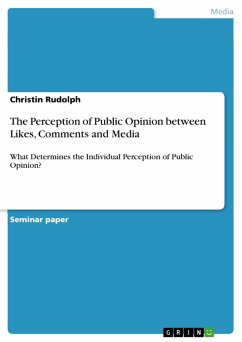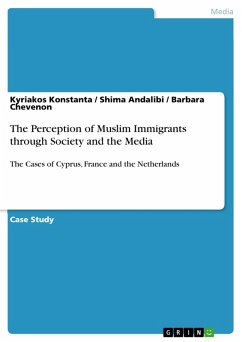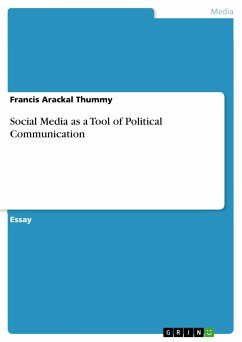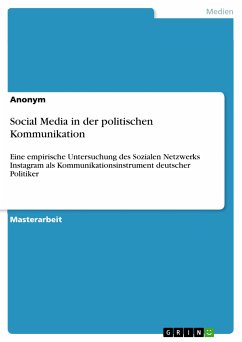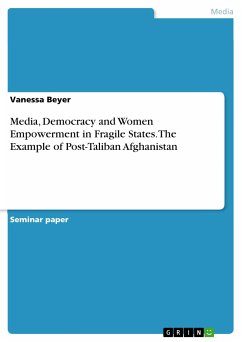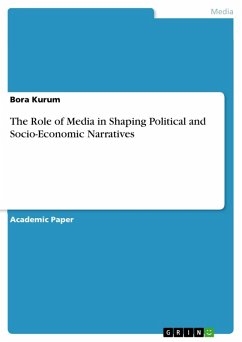Seminar paper from the year 2018 in the subject Communications - Media and Politics, Politic Communications, grade: 1,3, University of Mannheim, language: English, abstract: Especially for democratic political systems, public opinion plays a major role in the political Research on public opinion often focuses on aggregated effects. But how do individuals assess what millions of people they have never met think about single issues? In recent years, SNS have become increasingly important for politics. They pose a new means of campaign activities and are targets of new laws, e.g. the Netzwerkdurchsetzungsgesetz in Germany, but have also been used for deception (cf. Hameleers and Schmuck 2017, Esser, Stepinska and Hopmann 2016). These developments and the lack of-up-to-date evidence in the literature led me to the following research question: What determines the individual perception of public opinion? The remainder of the paper is structured as follows. After some remarks concerning the definition of the term public opinion, I will discuss single influential works for the field in general and, briefly, the literature of the past two decades examining the specific micro-level relationship. As the paper aims to examine current implications, a focus lies on the effects of aggregated user opinion representations and comments on SNS embedded in the frameworks of the spiral of silence (Noelle-Neumann 1974, 1977, 1993), social projection (Fields and Schuman 1976) and the persuasive press inference (Gunther 1998).
Dieser Download kann aus rechtlichen Gründen nur mit Rechnungsadresse in A, B, BG, CY, CZ, D, DK, EW, E, FIN, F, GR, HR, H, IRL, I, LT, L, LR, M, NL, PL, P, R, S, SLO, SK ausgeliefert werden.

